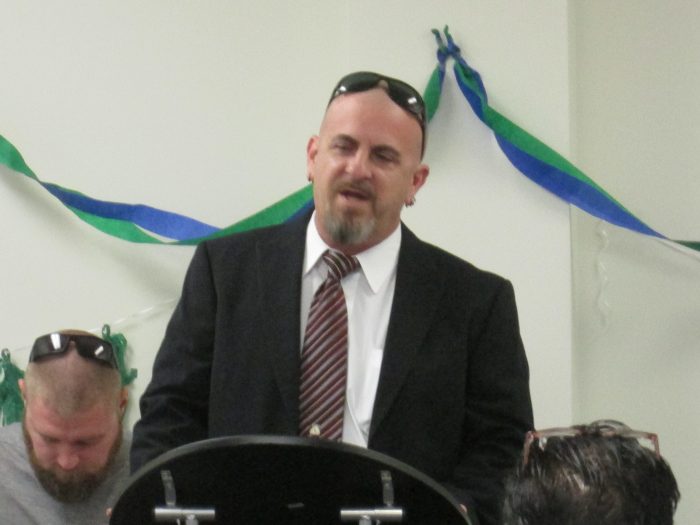
On May 22, the GEO Reentry Service Center in Lancaster, Pennsylvania held a transition ceremony celebrating its tenth graduating class in conjunction with five years of providing community corrections services in Lancaster County.
Program Manager Kimberly Reichenbach opened the ceremony by highlighting the RSC’s five-year anniversary. The RSC is part of a statewide initiative to reduce recidivism, lower incarceration costs and enhance public safety. Since 2014, the center has assisted more than 800 individuals in Lancaster County successfully transitioning back to their community.
Staff, friends and family members attended the transition ceremony to recognize and celebrate the group of 29 graduates for their hard work and achievements in the program. From intake to discharge, the average LSI-R score for the graduates decreased from 24 to 18, representing a significant decrease in the group’s overall recidivism risk. The LSI-R is a widely used assessment tool that evaluates 10 factors to determine a participant’s risks and needs. This score helps reentry staff and caseworkers determine an individual treatment plan designed to support successful reentry.

Another consideration for recidivism risk is employment status and financial stability. During the graduates’ initial intake assessments, only six participants indicated they had jobs, but by the time they were discharged, 27 of the 29 reentrants were employed. A major part of programming at the RSC is geared toward finding and securing employment so participants are prepared to lead a productive life in their communities. Work readiness programs, along with community partnerships for on-the-job training and other vocational opportunities, help participants prepare, find and maintain steady work that helps stabilize their lives in the community.
During the transition ceremony, keynote speaker and Pennsylvania Board of Probation and Parole Agent Travis George spoke to the reentrants about the importance of seeing their accomplishments as the start of a new journey of self-improvement. He encouraged the group to continue pursuing their goals, asking for help and taking responsibility for their choices. He also highlighted the importance of staying connected to support systems like GEO Reentry, encouraging participants to stay in touch with RSC staff for continued support. At the conclusion of the ceremony, reentrants received completion certificates and memorialized their success on the center’s Moral Reconation Therapy tree, a mural at the RSC symbolizing participants’ progress as they work through the phases of cognitive behavioral treatment designed to modify criminal thinking.
